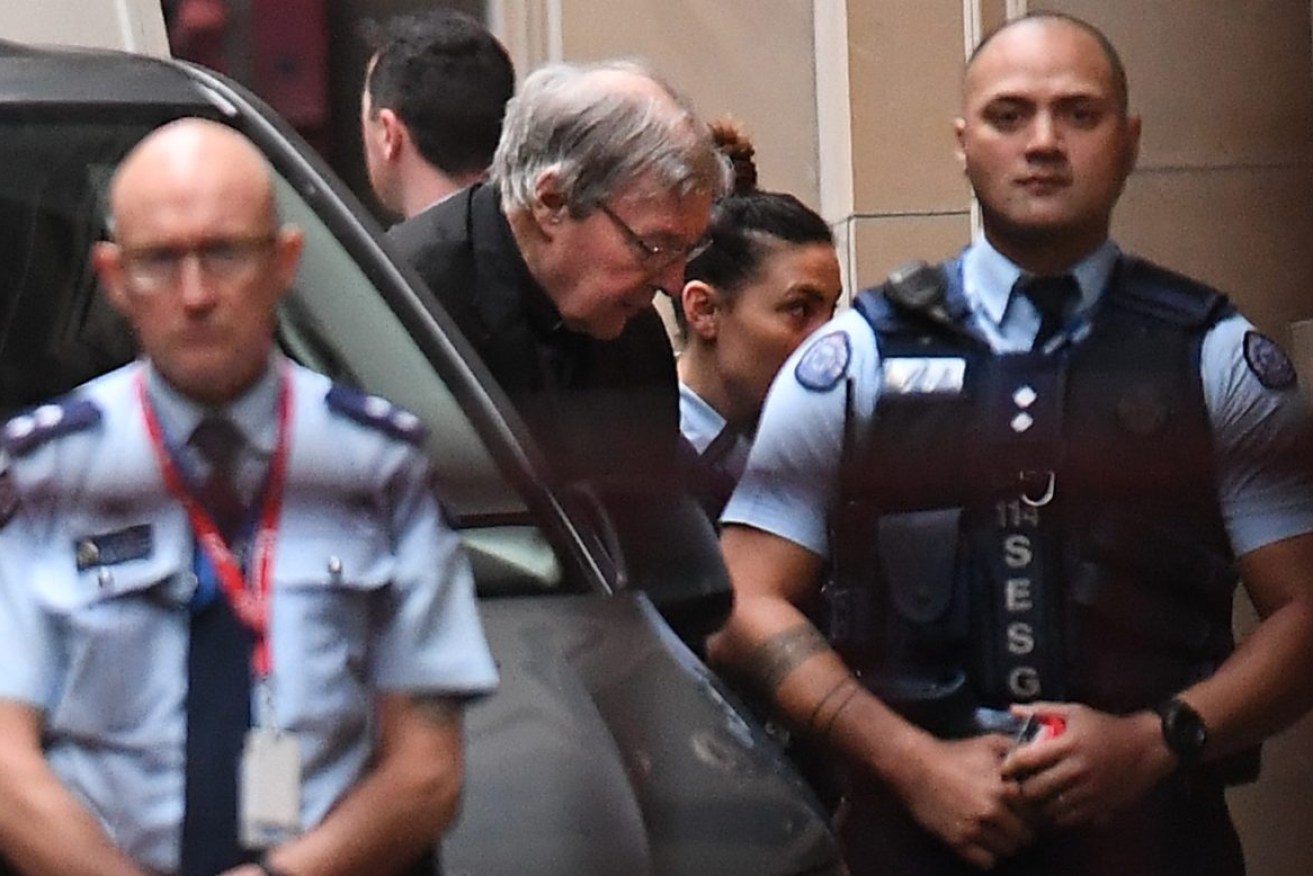George Pell appeal begins against child sex conviction
Disgraced cardinal George Pell believes there were more than a dozen solid obstacles that should have prevented his conviction for sexually abusing two teenage boys in the 1990s.

Cardinal George Pell was convicted of child sexual abuse and lost an appeal but was freed from prison after a High Court ruling. Photo: AAP/Julian Smith
The convicted sex offender and Catholic priest has returned to court in Melbourne, where his legal team will seek his acquittal on five charges over the abuse of the 13-year-old choirboys at St Patrick’s Cathedral in 1996.
Pell, 77, is serving at least three years and eight months behind bars after being convicted by a jury in December of raping and sexually abusing one boy and molesting another in the priest’s sacristy.
He arrived in court on Wednesday morning dressed in a black shirt and jacket and wearing his clerical collar once again.
He wore an open shirt at his sentence, his first court appearance after being taken into custody.
Specialist appeals barrister Bret Walker SC is leading Pell’s legal team, taking over from trial barrister Robert Richter QC.
They will argue the evidence presented by the prosecution at trial should have cleared Pell of wrongdoing.
The appeal will be heard by the chief justice of the Supreme Court of Victoria, Justice Anne Ferguson, president of the Court of Appeal Justice Chris Maxwell and Justice Mark Weinberg.
In written submissions, Pell’s defence claims more than 20 prosecution witnesses who had an official role in a Sunday mass gave evidence the offences did not or could not have occurred then, as accepted by the jury.
“This evidence constituted a catalogue of at least 13 solid obstacles in the path of a conviction,” the submissions said.
“No matter what view was taken of the complainant as a witness, it was simply not open to a jury to accept his words beyond reasonable doubt.”
The submissions argue prosecutor Mark Gibson took a “flawed” position when presenting his final case, focusing on pieces of evidence individually when looking at it altogether would have required a series of implausible events to have occurred within a short space of time.
The submissions also take aim at the evidence of the surviving victim – who cannot be named for legal reasons and whose evidence was not released publicly – on which the prosecution’s case rested.
The defence argues his claims were implausible and also changed in critical ways when presented with facts that “exposed its impossibility”.
“At best, these repeated alterations revealed him to be uncertain and unreliable about critical particulars of his own narrative,” the document reveals.
“At worst, he demonstrated a tendency to deliberately alter crucial elements of his story on numerous occasions when confronted by solid obstacles.”
The defence team will also argue County Court Chief Judge Peter Kidd erred in not allowing Mr Richter to present a video in his closing arguments, and that there was a “fundamental irregularity” in how Pell was arraigned at trial.
Prosecutors have countered each of the defence claims arguing evidence showed the offending was possible, and hit back at the claims against Mr Gibson’s closing address was “without merit”.
“The events described by various witnesses … established that there was more than ample opportunity and circumstances for the offending, described by the complainant, to have occurred,” their submissions claim.
“The day itself, whilst significant and memorable for the complainant, could not be described as remarkable for anyone else who was simply going about the business of Sunday mass.”
The second boy abused by Pell died in 2014.
Lisa Flynn, a lawyer representing that man’s father, said the appeal had caused him sleepless nights.
“Understandably he is feeling really anxious knowing that George Pell’s conviction could be overturned but he is extremely hopeful that this will not be the case.”
Pell was sentenced to a maximum of six years in prison in March.
He is only appealing against the conviction, not his sentence.
-AAP




